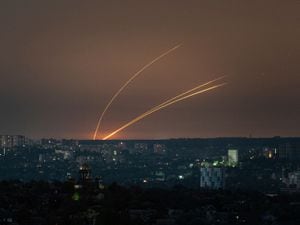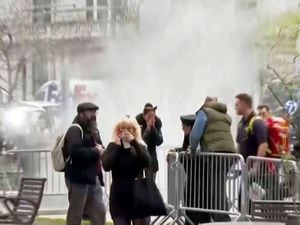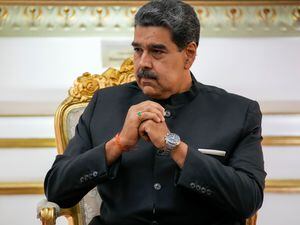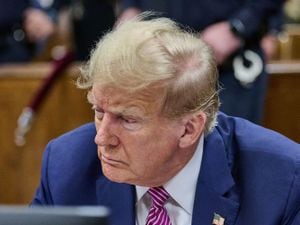Arrest warrant for Putin will prolong war in Ukraine, says Serbia’s president
Aleksandar Vucic said the international warrant for the Russian leader’s arrest would hinder peace talks.
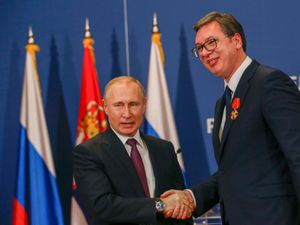
Issuing an international arrest warrant for Russian president Vladimir Putin will have negative consequences and will only prolong the war in Ukraine, Serbia’s president has said.
The International Criminal Court issued the warrant for the Russian leader on Friday, accusing him of war crimes.
The ICC accused Mr Putin of bearing personal responsibility for the abductions of children from Ukraine during Russia’s full-scale invasion of its neighbour that started almost 13 months ago.
But Serbian populist president Aleksandar Vucic, who had in the past boasted about his personal relation with the Russian leader, criticised the court’s decision.
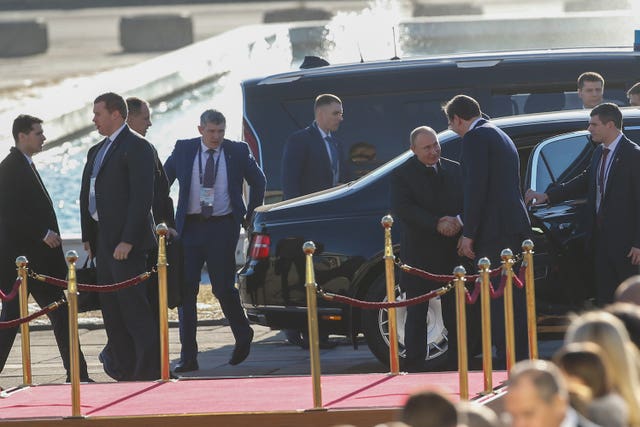
“I think issuing an arrest warrant for Putin, not to go into legal matters, will have bad political consequences and it says that there is a great reluctance to talk about peace (and) about truce” in Ukraine, Mr Vucic told reporters in Belgrade.
“My question is now that you have accused him of the biggest war crimes, who are you going to talk to now?” Mr Vucic said.
“Do you really think that it is possible to defeat Russia in a month, three months or a year?” he asked, adding: “There is no doubt that the goal of those who did this is to make it difficult for Putin to communicate, so that everyone who talks to him is aware that he is accused of war crimes.”
Asked if Mr Putin would be arrested if he comes to Serbia, Mr Vucic said that it is “a pointless question, because it is clear that as long as the conflict (in Ukraine) continues, Putin has nowhere to go.”
Although Serbia is seeking European Union membership, it has maintained close ties to Russia and is the only European state that has refused to join international sanctions against Moscow.
Mr Vucic, a strong opponent of international war crimes courts, was a ranking official of an ultra-nationalist party whose leader Vojislav Seselj and several other members ended up in the international war crimes court on trials for crimes they committed during the wars in the 1990s.
In the late 1990s, Mr Vucic was information minister in the government of Serbian president Slobodan Milosevic during the war in Kosovo where Serb troops were accused of various war crimes committed against Kosovo Albanian separatists.
Mr Milosevic was arrested in Serbia on war crime charges in 2001. He died at the international war crimes court in the Hague in 2006 before his trial on the crimes committed by Serbian troops during the wars in the Balkans in the 1990s ended.

